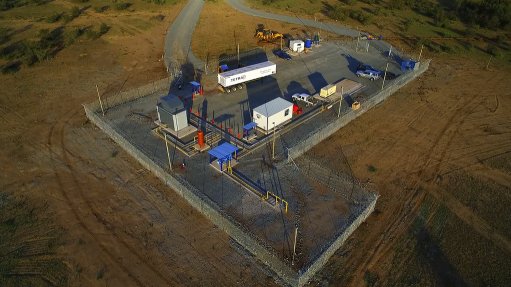
PRODUCTION EXPANSION While Tetra4 already produces compressed natural gas, new expansions will include the liquefaction of the gas – the first in South Africa
The Petroleum Agency of South Africa has granted integrated alternative and renewable- energy business Renergen’s Tetra4 subsidiary environmental authorisation for its Free State natural gas development.
The authorisation, the processing of which has taken more than two years, with multiple rounds of public participation, was required to further the development of a natural gas resource through the creation of a 107 km pipeline network and associated gas processing facilities.
“The approval is groundbreaking for Renergen. We now enjoy the status of having not only the first onshore petroleum production right in the country but also the only environmental authorisation to start full-scale production,” Renergen CEO Stefano Marani noted in a statement released last month.
During a media briefing prior to the announcement, Marani also expressed the belief that this development is “the game changer” in promoting the south African gas economy.
He further expressed the company’s excitement at progressing production and unlocking value for shareholders earlier than expected.
Tetra4 further announced that it would become the first local company to produce liquefied natural gas (LNG) in South Africa, and among the first to sell LNG locally.
As a result of significant engineering, Tetra4 would start construction of natural gas liquefiers early in 2018, with LNG production to start in early 2019, Marani noted.
The advantages of locally producing and selling LNG include significant financial savings to the end-user, as gas in liquid form allows for efficient, long-range transport. Such gas also overcomes the challenges of storing compressed natural gas (CNG) in vessels of specified size and weight, as well as the challenges of the high pressures associated with the gas, he stated.
When producing LNG, the liquefaction of gas allows for the condensation of energy around 625 times its natural state. This form of gas increases the energy density to levels comparable with those of diesel, which means Tetra4 will now be able to deliver its gas nationally.
“This ground-breaking initiative will see trucks and buses using LNG, supplied by Tetra4, travel up to 2 000 km, compared with the current 500 km,” Marani stated.